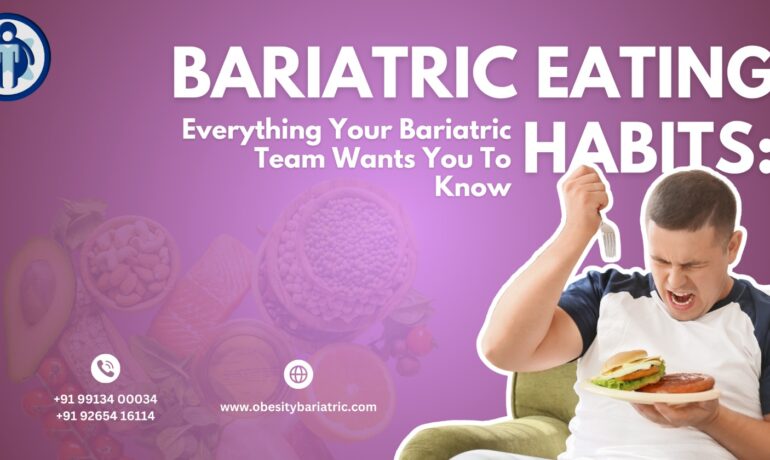Bariatric eating habits are an important part of your post-bariatric life. You are no longer accustomed to eating so much, so you need to review how you approach food. Below we’ll cover common bariatric eating habits, as well as descriptions of what may cause them. This will help you understand why a patient may develop adverse reactions after bariatric surgery by explaining the changes their body goes through when healing from the operation itself, then the changes it undergoes after weight loss surgery.
1: Liquid diet.
2: Pureed food.
3: Soft foods diet.
4: Normal texture foods.
5: EXTRA TIPS
1 Liquid Diet
Your bariatric team will want you to start with a liquid diet, which means you’ll be eating an extremely low amount of food. This is called the liquid phase because it’s so low in calories. You won’t be able to eat solid food during this phase, but you can drink liquids and soups that are specially made for patients with chronic illness. Your bariatric dietician will teach you how to make your own soups from scratch and what kinds of juices are safe for you to drink.
- Protein Powder with water / Skimmed milk
- Boiled Vegetable soup
- Dal soup (Lentils), Moong water
- Butter Milk, Carrot Juice
- Green vegetable soup
- Fresh Fruit Juices (Apple / Orange / Mosambi)
- Soymilk, Tomato soup
- Coriander / Methi / Palak Juice
- Musk Melon, Ragi flour porridge
Special Instructions:-
- 1.5 to 2 litres in whole day
- Intake in Small portions
- 120 -180 ml at one time
- Stop drinking when feel full
- Carbonated beverages should be avoided.
- Never leave yourself hungry
2 Pureed foods
When you’re ready for solids, your bariatric team will gradually add more solid foods into your diet. The pureed phase is when they’ll start mixing specific foods together to make sure that those foods don’t cause any digestive issues or upset your stomach. Your bariatric dietician will also be able to help you find recipes that work well with your specific needs (for example: if you have an allergy).
- Boiled Sprouts – moong / Chana
- Khichdi
- Curd
- Apple
- Papaya
- Upma
- Boiled Rice with Sambar / Dal
- Protein supplements With Milk / Water
- Ragi Flour Porridge
For Non- vegetarians
- Boiled egg white
- Boiled Chicken
- Clear Chicken Soup
Special Instructions:-
- Very small bites & Chew well
- Do not drink water during meal.
- Cup of water and other fluids between meals to avoid dehydration.
- No big pieces or chunk of food.
- Avoid raw vegetables, Nuts, Dry fruits, popcorns,chips, farsan, sev mumra, potatoes, beet root
3 Soft foods diet
Soft foods are a good option for those who have trouble chewing solid food because they don’t require chewing very well or swallowing completely. Soft foods include mashed potatoes with gravy, mashed sweet potatoes, chicken nuggets seasoned with salt and pepper, or soft-boiled eggs that have been sliced in half lengthwise and served on top of salad greens dressed with ranch dressing (although some people may find this situation off-putting).
- 1 wheat chapati / Wheat Roti
- 1 katori sabji
- Dal rice / Rasam rice
- Boiled Vegetables
- Guava / Strawberry
- Seasonal fresh fruits (Non Sugary)
- 1 cube paneer / tofu
- Skimmed milk with Protein
- 1 katori curd
- Idli / Millet Dosa
- Poha / Utapam / Vermicelli upma
- Water Melon slice, Apple pieces
- Skimmed Curd / Yogurt
Special Instructions:-
- Increase variety and consistency of foods.
- No Liquids with meals
- Eat only at set meal times
- Avoid empty calorie foods like bakery products , ice creams, high calorie drinks
- Avoid High fat foods like Ghee, whole milk, mayonnaise, fried food, desserts, salad dressings
- We strongly warn against drinking any alcoholic beverages. After surgery, alcohol is absorbed into your system much more quickly than before, making its sedative and mood-altering effects more difficult to predict and control.
4 Normal Textured Diet
In this phase you’ll be able to eat normal texture foods like toast with butter on it, pizza crusts topped with tomato sauce and cheese sprinkled on top (though you should avoid eating any kind of meat until your bariatric surgeon says it’s OK)
5 Extra Tips
- Chew each bite of food 20 to 30 times.
- Drink fluids before, during and after meals and avoid drinking them during the meal itself.
- Eat slowly, giving yourself at least 30 minutes to eat a meal..
- Stop eating when you are no longer hungry – not full.
Takeaway: These tips will help you maintain your weight loss success following bariatric surgery.
Conclusion
After Bariatric Surgery your eating habits are more important for your healthy weight loss & recovery. Post bariatric diet is more important in your weight loss journey keep consult with your surgeon & dietician for healthy life.


